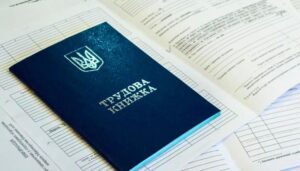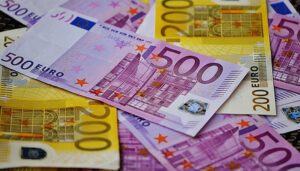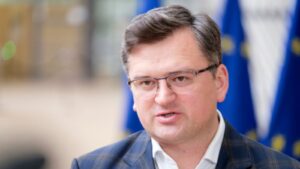
Oil prices are declining Monday morning after a sharp decline over the past week caused by concerns about the Chinese economy.
The cost of January futures for Brent at London’s ICE Futures Exchange stood at $86.65 a barrel by 7:06 a.m., down $0.97 (1.11%) from the close of the previous session. Those contracts fell by $2.16 (2.4%) to $87.62 per barrel at the close of trading last Friday.
The price of WTI futures for January at the electronic trading on the New York Mercantile Exchange (NYMEX) is $79.34 per barrel by that time, down $0.77 (0.96%) from the previous session. The contract fell by $1.56 (1.9%) to $80.08 per barrel at the end of last session.
Brent dropped 8.7 percent and WTI dropped 10 percent at the end of last week. Both contracts finished the trading at their lowest since the end of September.
The main negative factor for oil quotations last week was the concerns about demand for fuel, especially in China.
China’s State Council warned of the risks of “irresponsible weakening” of countermeasures against the coronavirus, the South China Morning Post reported. In the past two weeks, the number of new cases of COVID-19 infection recorded daily in China has increased sevenfold, the WSJ wrote.
Traders are also trying to estimate how much crude will leave the market after the European embargo on Russian oil went into effect Dec. 5.
“No doubt the market will keep an eye on oil supply data from OPEC+ countries in the coming weeks, as it remains unclear how much production will actually decline after the announced 2 million bpd cut,” wrote Barbara Lambrecht of Commerzbank.
Meanwhile, the number of active oil rigs in the USA last week increased by 1 unit to 623, oil services company Baker Hughes reported. The index rose for the third week in a row.

The dollar is rising strongly against the euro and the pound sterling and moderately more expensive against the yen, thanks to increased demand for protective assets and hawkish statements from Fed chiefs.
The ICE-calculated index showing the dynamics of the US dollar against six currencies (euro, Swiss franc, yen, Canadian dollar, pound sterling and Swedish krona) is up 0.4%, while the broader WSJ Dollar Index is up 0.34%.
The euro/dollar pair is trading at $1.0284 by 7:35 a.m., versus $1.0326 at the close of last Friday’s session; the euro is losing about 0.4%.
The dollar/yen is up 0.1% at 140.47 yen, up from 140.39 yen at the end of last session.
The pound is getting cheaper by 0.5% and is trading at $1.1829 versus $1.1888 the day before.
Federal Reserve Bank of St. Louis Governor James Ballard said last week that the Fed would have to keep raising the benchmark interest rate. At the same time, the charts accompanying his remarks showed that its level could reach 5-7% per year.
Meanwhile, Boston Fed Chair Susan Collins said Friday that the Fed could consider various options for changing the interest rate at its December meeting, including a 75 basis point hike.
The Fed has raised the rate by 75 bps at its last four meetings, and now analysts and economists generally expect the next hike to be 50 bps.
The Fed will hold its next meeting on December 13-14.
The dollar is also supported by demand for safe haven assets amid fears over the spread of the coronavirus in China and actions by authorities to contain the pandemic, writes Trading Economics.

Russia’s armed aggression has deprived 5 million people in Ukraine of work, about 7 million people have already left the country because of hostilities, Deputy Economy Minister Tatiana Berezhnaya said at the Polish-Ukrainian economic forum held late this week.
“The war is destroying Ukraine’s labor market. The fighting continues where 10 million people were employed. At least 5 million people have lost their jobs. Hundreds of workers have died in the fighting. Unemployment has risen significantly,” the Ministry of Economy quoted Berezhnaya as saying on its website at a debate on social policy and challenges in the context of the war in Ukraine.
According to her, that is why stabilization and recovery of the economy, the development of the labor market, the return home of citizens and the creation of new jobs are among the key priorities of the government.
Among the programs aimed at solving these problems, the deputy minister named affordable loans for businesses, the relocation of businesses from hazardous areas to relatively safe areas, grant support for entrepreneurship development – “Yerobota”, the involvement of the unemployed in socially useful work within the project “Army Recovery”, programs to help partial unemployment.
“We understand that we face big challenges and tasks on the way of Ukraine’s recovery and the return of our people. We hope that international partners will support us in this, in particular our good friend Poland, where almost 1.5 million Ukrainians are now under a temporary protection program. We strive to bring home all of our citizens forced to leave because of the war,” Berezhnaya said.

At a meeting on Friday, the Cabinet of Ministers of Ukraine agreed to increase the amount of a concessional loan to Poland by EUR 60 million under an intergovernmental agreement for the implementation of investment projects.
According to the Ukrainian Ministry of Finance, the total amount of the soft loan that Poland will provide now amounts to EUR 160 million.
The funds provided will go to Ukravtodor – EUR 94.1 million (development of road infrastructure at the approaches to five border crossing points on the Ukrainian-Polish border), the State Customs Service – EUR 58.9 million (improvement of border crossing points Shehyni, Krakovets, Rava-Ruska, purchase of mobile scanning systems at border crossing points Yahodyn, Shehyni, Krakovets, Rava-Ruska) and the Administration of the State Border Service – EUR 7 million (purchase of unmanned aerial systems and border monitoring equipment).
In addition to increasing the loan amount, the government decree regulates the issue of extending the deadline for concluding contracts by two years – until December 31, 2024, and provides an opportunity to amend contracts concluded in 2017-2018 to increase their value.
According to the Ministry of Finance, the requirement for a minimum of 60% of expenses of Polish origin for the purchase of technical means of customs control will also be cancelled.

Instead of proposing premature peace talks with Russia, which does not seek a peace process, the goal of partners should be a victory for Ukraine, which will bring a sustainable and just peace to the European continent, Foreign Minister Dmytro Kuleba said.
“We need a victory, not a draw. If we allow Russia to take a pause now, Putin will create a frozen conflict in the middle of Europe, a giant time bomb that will be ready to explode every second. It would be a strategic mistake for Europe to pursue such a goal. I caution Ukraine’s partners: do not offer us compromises on conscience, territorial integrity or sovereignty. Because it will be your compromises with your own security,” he said in a video address to the participants of the Pan-European Union jubilee congress, which is held on the occasion of the 100th anniversary of the organization in Vienna.
According to Kuleba, no country in the world strives for peace as much as Ukraine, but “wars like this one must end with the victory of good over evil.
He called on partners to work together to achieve Ukraine’s victory goals.
“We should not be subjected to fear and blackmail. Every time we Europeans have remained firm, principled, united and strong, Putin has always backed down. Any sign of weakness is seen by Russia as an invitation to further terror and atrocities. That is why support for Ukraine must continue and intensify, and no retreat from the sanctions pressure on Russia is acceptable,” the minister stressed.
Kuleba noted that now is the time for partners to set a goal of victory for Ukraine and work to achieve it, instead of looking for premature peace agreements with Russia, because Moscow has not changed its ultimative tone and uses statements about alleged readiness for negotiations only as a cover for continued aggression. .
“Real peace will be brought by a Ukrainian victory. This goal is quite achievable, as proved by the Kharkov and Kherson operations this fall. A Ukrainian victory would also be a victory for Europe and the West. It will renew peace and security on our continent for decades,” he said.
The minister stressed that the support of international partners must continue.
“This includes defense support, further isolation of Russia, financial support, urgent assistance in rebuilding our energy system damaged by Russian strikes. I remind you that aid to Ukraine is not charity. By helping us, European partners are helping themselves, contributing to Europe’s long-term security and stability,” the minister concluded.